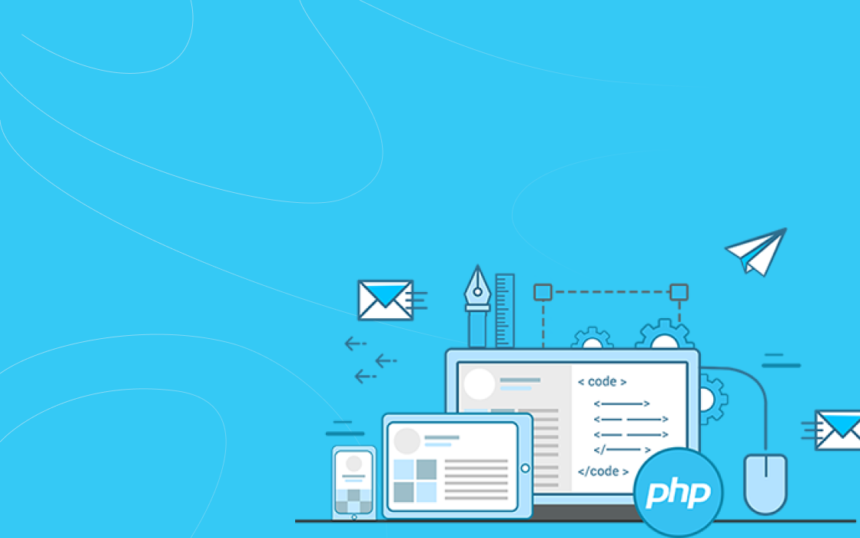Are you on the hunt for a versatile and dynamic solution to enhance your website’s functionality? Look no further than Portal.php! In this blog post, we’ll delve into the ins and outs of Portal.php – exploring its features, advantages, disadvantages, alternatives, optimization tips, and more. Whether you’re a seasoned web developer or just starting out in the digital realm, understanding if Portal.php is the right fit for your website is crucial. Let’s embark on this exciting journey together to uncover the power of Portal.php!
Understanding Portal.php and Its Features
Portal.php is a dynamic tool designed to streamline website management and enhance user experience. At its core, Portal.php serves as a centralized platform where users can access various features and content seamlessly. One of the key features of Portal.php is its customizable interface, allowing users to tailor the portal to their specific needs and preferences.
Additionally, Portal.php offers robust security measures to protect sensitive data and ensure a safe browsing experience for visitors. Its intuitive design makes it easy for both developers and end-users to navigate and utilize the portal efficiently. Furthermore, Portal.php supports integration with other systems and applications, increasing functionality and versatility.
Understanding the features of Portal.php can empower website owners to create engaging portals that cater to their target audience’s needs effectively.
Advantages of Using Portal.php for Your Website
Portal.php offers a wide range of advantages for your website. One key benefit is its customization options, allowing you to tailor the portal to fit your specific needs and branding. This flexibility enables you to create a unique and personalized user experience that resonates with your audience.
Another advantage of using Portal.php is its efficient content management system. With this tool, you can easily organize and update your website’s content, ensuring that it stays relevant and engaging for visitors. This streamlined process saves time and effort, freeing you up to focus on other aspects of running your site.
Additionally, Portal.php provides robust security features to protect your website from cyber threats. By incorporating secure login systems and encryption protocols, you can safeguard sensitive information and build trust with users. This added layer of protection enhances the overall credibility of your site in the eyes of visitors.
Leveraging Portal.php can elevate the performance and functionality of your website, empowering you to deliver a seamless online experience for users while maximizing engagement and conversions.
Disadvantages of Using Portal.php
When considering using Portal.php for your website, it’s important to be aware of some potential drawbacks. One disadvantage of Portal.php is its complexity – the learning curve may be steep for those unfamiliar with this platform. This could lead to challenges in customization and troubleshooting.
Another drawback is the limited support available compared to more popular website platforms. Finding resources or assistance when encountering issues may prove challenging. Additionally, since Portal.php is not as widely used, there might be a lack of community forums or tutorials for guidance.
Furthermore, the performance of websites built on Portal.php could potentially be affected due to its specific architecture and features. This might impact loading times and overall user experience on your site. Consider these factors carefully before deciding if Portal.php is the right choice for your website needs.
Alternatives to Portal.php
Considering alternatives to Portal.php for your website? There are several options worth exploring that offer different features and functionalities. One popular alternative is WordPress, a versatile platform with numerous plugins and themes to customize your site. Joomla is another robust option known for its flexibility and scalability, making it ideal for larger websites with complex requirements.
If you’re looking for a lightweight solution, consider using Drupal, which offers powerful content management capabilities while being less resource-intensive than some other platforms. For those interested in e-commerce, Shopify provides an easy-to-use platform specifically designed for online stores.
Each alternative comes with its own set of advantages and limitations, so it’s essential to evaluate your specific needs before making a decision. By comparing the features and benefits of each option, you can determine the best fit for your website project.
How to Decide if Portal.php is Right for You
When deciding if Portal.php is the right choice for your website, it’s essential to evaluate your specific needs and goals. Consider the features offered by Portal.php and how they align with what you require for your site.
Take into account factors such as customization options, ease of use, and compatibility with other tools or platforms you may be using. It’s also crucial to assess whether Portal.php fits within your budget and resources in terms of implementation and maintenance.
Additionally, think about the scalability of Portal.php – will it be able to grow alongside your website as it expands? Conduct thorough research, read reviews from other users, and perhaps even test out a demo version to get a feel for how Portal.php works in practice.
Making an informed decision requires weighing all these considerations against your unique circumstances to determine if Portal.php is indeed the right fit for you.
Tips for Optimizing Your Website with Portal.php
When it comes to optimizing your website with Portal.php, there are a few key tips to keep in mind. First and foremost, make sure to regularly update the content on your portal to keep visitors engaged and coming back for more. Fresh and relevant content is essential for maintaining a dynamic online presence.
Another tip is to utilize SEO best practices when structuring your portal pages. This includes using relevant keywords, meta tags, and alt text for images to improve visibility on search engines. By incorporating these elements into your portal.php setup, you can increase organic traffic to your site.
Additionally, consider integrating social media sharing buttons on your portal pages so that visitors can easily share your content across various platforms. This not only helps expand your reach but also boosts engagement with users who discover your site through social channels.
Don’t forget about mobile optimization. Ensure that your portal.php design is responsive and mobile-friendly so that users accessing your site from smartphones or tablets have a seamless experience. A well-optimized mobile layout can significantly impact user satisfaction and retention rates.
Conclusion
When considering whether to use Portal.php for your website, it’s essential to weigh the advantages and disadvantages outlined in this article. While Portal.php offers a range of features that can enhance user experience and streamline website management, it also has limitations that may not align with your specific needs.
The decision to use Portal.php will depend on factors such as the complexity of your website, your technical skills, and your long-term goals. It’s crucial to thoroughly evaluate all options available and choose the solution that best fits your requirements.
If you decide that Portal.php is the right choice for you, be sure to follow the tips provided in this article for optimizing its performance on your website. By taking advantage of its features while addressing any potential drawbacks, you can create a seamless and efficient online experience for both yourself and your visitors.
Remember, every website is unique, so take the time to assess how Portal.php aligns with your specific objectives before making a final decision.









